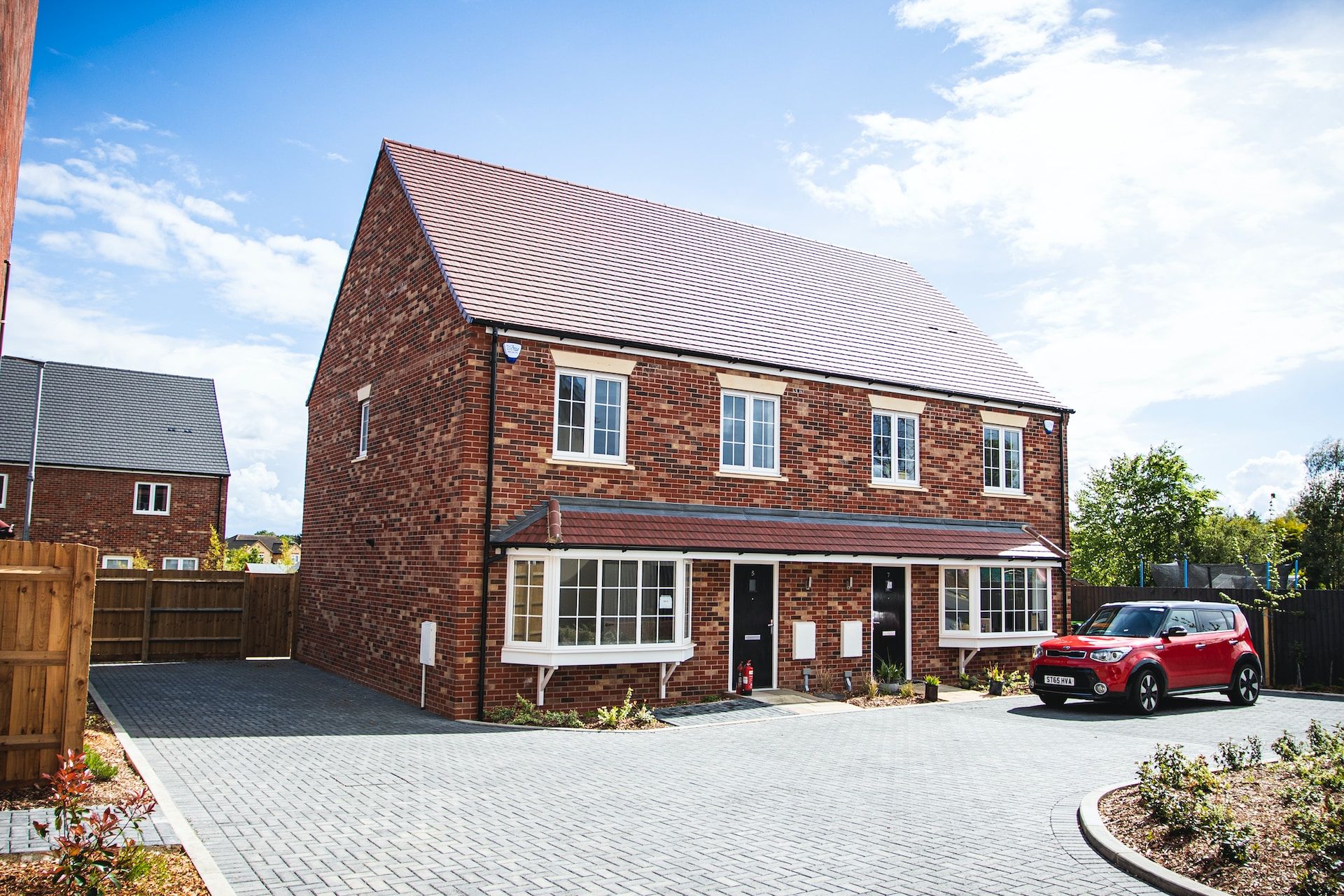UK property price update for September 2023
Introduction
The housing market in the United Kingdom has seen significant changes over the past few years. Most notably, house prices have started to decline after hitting record highs in mid-2022. This reversal comes on the back of rising interest rates and cost of living pressures facing UK households.
What Happens to House Prices During Inflation?
High inflation, like what the UK is still experiencing today, can negatively impact house prices. As the cost of living rises faster than incomes, discretionary spending power reduces. This pressures property prices in the following ways:
- Mortgage rates typically rise as central banks hike interest rates to control inflation. This reduces affordability and prompts caution among buyers.
- Consumer confidence declines amidst rising costs and uncertainty. People forestall major purchases like homes when sentiment is weak.
- Construction and renovation costs increase, making new housing supply limited. Shortages can eventually lead to higher prices.
- Real disposable incomes fall, as salaries fail to keep pace with inflation. This forces potential buyers to lower their budget range when house hunting.
However, nominal house prices tend to be stickier than other assets during inflation. Sellers are unwilling to drop prices quickly. Instead, activity slows as buyers and sellers adopt a wait-and-watch approach.
| Date | Price |
|---|---|
| Jan, 2023 | £287,274 |
| Feb, 2023 | £285,648 |
| Mar, 2023 | £283,635 |
| Apr, 2023 | £285,010 |
| Sep, 2023 | £289,157 |
| Nov, 2023 | £284,617 |
| Jan, 2024 | £278,072 |
| Mar, 2024 | £279,523 |
| Jun, 2024 | £288,043 |
| Jul, 2024 | £289,723 |
| Jun, 2023 | £287,800 |
| Oct, 2023 | £287,504 |
Price of an average property in the United Kingdom in the last 12 months
Are UK House Prices Overvalued?
After rapid gains through the pandemic, there are concerns UK house prices may now be overvalued versus fundamentals. The house price-to-income ratio is at historic highs, signalling homes are becoming unaffordable for average earners.
Real house prices have also risen far quicker than wages when accounting for inflation over the past decade. Additionally, the gap between mortgage payments and rents on comparable properties has widened substantially, indicating investors are likely overpaying.
Average price-to-rent ratios across most UK regions are well above long-term averages too. Estimates indicate house prices may be 15% to 20% overpriced relative to incomes, rents and other fundamentals. Some correction could thus be underway to realign prices, especially given high inflation and rising mortgage rates.
Factors Behind the Fall in UK House Prices
Rising Interest Rates
One of the biggest influences on the housing market has been the steady rise in interest rates by the Bank of England. Interest rates were slashed to a historic low of 0.1% in March 2020 to boost the economy during the Covid-19 pandemic. However, with inflation hitting double digits, the BoE has embarked on an aggressive tightening cycle.
The Bank Rate has already been hiked 14 times from 0.1% to over 5%. This has fed into higher mortgage rates, making it more expensive to buy a home. Most experts expect more rate hikes, further dampening housing market activity.
The low interest rate environment during the pandemic fuelled demand as the cost of borrowing became very cheap. First-time buyers could obtain mortgages with initial rates as low as 1-2%. This spurred many new entrants into the market.
However, the landscape has completely changed over the last 12 months. The average 2-year fixed mortgage rate has shot up from under 2% to over 6%. This has added hundreds of pounds to monthly mortgage payments. Existing homeowners on variable rates or ones looking to re-mortgage have experienced similar jumps.
The huge leaps in mortgage rates have impacted affordability significantly. According to estimates, a first-time buyer taking out a typical mortgage now pays around 40% more per month compared to December 2021. For existing homeowners, the monthly payment shock can be even higher depending on their outstanding principal.
This deterioration in affordability has been the primary driver behind slowing housing market activity. Buyer demand has fallen sharply, as new entrants drop out and existing owners hesitate to trade up. Many current owners are also locked into their existing lower rates, unable or unwilling to move due to the rate hike.
The Bank of England is expected to further raise its policy rate, which will feed into even higher mortgage rates. Markets expect the Bank Rate to rise another 25 basis pointers when the Bank of England's Monetary Policy Committee meet on September 21st 2023. This will maintain pressure on the housing market, as potential buyers face higher loan costs.
Cost of Living Crisis
Soaring utility bills, food costs and transport expenses have squeezed household budgets. Buyers have little surplus left for expensive purchases like property after meeting regular outgoings.
The UK is still in the midst of an intense cost of living crisis driven by high inflation. Whilst inflation figures are starting to come down, consumers are still feeling the effects of double-digit rates of inflation, which has severely eroded disposable incomes and purchasing power.
This combination of surging household expenses has left the average UK consumer with much less discretionary income even for essentials. Potential home buyers have been forced to cut their budgets amidst declining real wages and heightened uncertainty.
Outlook for UK House Prices
The UK housing market outlook remains highly uncertain given the weak economic environment. With inflation biting and rates still expected to rise further later this month, forecasting future price trends is challenging, and a number of situations could arise.
Ongoing Correction
In this base case, the market correction continues with prices declining moderately over the next few quarters. But a severe crash is avoided as tight supply provides some support.
Affordability constraints dominate as mortgage rates remain high. Buyer demand fails to recover strongly with cost pressures weighing on incomes and confidence. Supply shortages persist too.
House prices fall further from current levels as valuations realign with fundamentals. But downside risks remain tilted until inflation is tamed and the economy stabilises.
Soft Landing
A more optimistic scenario sees house prices descending gradually without a destabilizing crash. Cost pressures abate allowing real incomes to recover. Unemployment remains contained as growth picks up.
These improving fundamentals coupled with declining mortgage rates spark a renewal in buyer activity. With housing shortages still acute, prices find a floor and stop falling.
The market absorbs its pandemic-era excesses in an orderly fashion. Valuations reach fair value, allowing incomes to catch up. Healthier demand-supply dynamics prevent prolonged stagnation.
The United Kingdom Enters A Recession
House prices typically face downward pressure during economic recessions. Redundancies and income losses make it difficult for buyers to secure financing. If you'd like to read more about this, we have a separate blog post titled What Happens To House Prices In A Recession?.
Conclusion
As the Bank of England works to rein in runaway inflation, consumer price rises are expected to moderate over the coming year. This should gradually feed into declining mortgage rates across 2-year and 5-year fixed terms. Lower loan costs and improving affordability could provide some respite to the UK housing market after a period of rapid home price growth. However, the market correction is unlikely to reverse quickly. With the economy still under pressure, house prices may continue their downward trajectory for some time before stabilizing and recovering sustainably.
The pandemic-induced housing boom has definitively ended. But it may take several years before the fundamentals align again for prices to trend firmly upwards. This period of realignment is necessary after years of overheating. For buyers and homeowners, the road ahead may remain bumpy but should ultimately lead back to stability.





